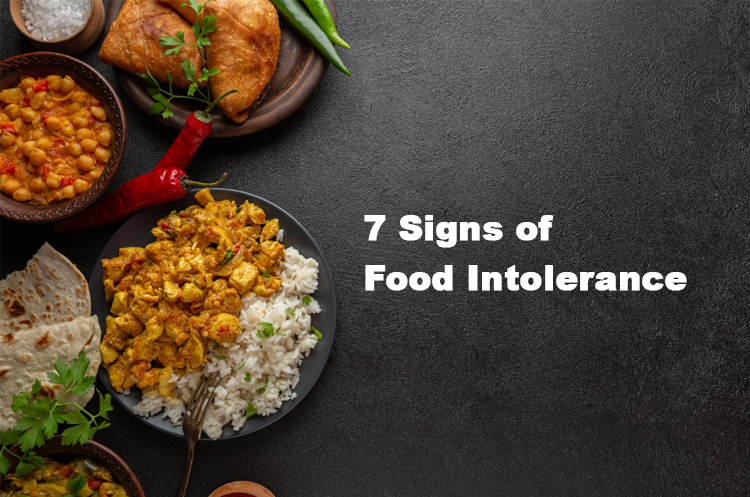Everyone has their own unique food intolerances. While some people are allergic to certain foods, others may have intolerance to them. Your body may react differently when you consume food that your system is sensitive to, such as diarrhea or stomach cramps. Read on for more information about the first signs of food intolerance so that you can start feeling better!
7 Signs of Food Intolerance
1. Gas and bloating
Bloating and gas are the most common symptoms of food intolerance. You might also experience other gastrointestinal symptoms, including heartburn, nausea, or vomiting. These symptoms can be caused by overeating, drinking too much fluid before or during meals, and eating too fast or overeating. They may also be caused by constipation or a lack of exercise.
2. Cramping, pain, and diarrhea
If you get cramps, soreness, or diarrhea after eating a specific meal, it can indicate food intolerance. If you have any of these symptoms, consult your doctor since these may be indicators of irritable bowel syndrome (IBS). Although food intolerance differs from an allergy, some people with allergies also have food intolerances to certain foods.
Must read: Food Allergy vs Food Intolerance – Detailed Information
3. Fatigue
Fatigue is a common symptom of food intolerance. It can be caused by many things, including a virus, poor sleep habits, and stress. If you have been experiencing fatigue for several weeks and are concerned that it may be caused by food intolerance, talk to your doctor about testing your foods.
Your doctor may recommend an elimination diet or other tests to help determine if there’s an issue with how your body processes certain foods.
If you do discover that one or more foods are causing you to feel fatigued on a regular basis, try eliminating them from your diet for at least two weeks before reintroducing any of these items back into your system:
- Wheat/gluten (including slices of bread/crackers)
- Dairy products (such as milk)
- Eggs and soybeans.
4. A stuffy or runny nose
A stuffy or runny nose is a common symptom of food intolerance. This may be caused by a number of different foods, including milk, eggs, and wheat. Other common symptoms include itchy eyes and hives.
5. Upset stomach and heartburn
The first signs of food intolerance can include stomach upset and heartburn. Heartburn is a burning pain in the chest that may feel like it’s radiating up through your throat. Heartburn can be caused by eating spicy or acidic foods, like tomatoes or citrus fruits; stress; bending over or lying down after eating; drinking alcohol, and being overweight. Antacids often relieve these symptoms by neutralizing excess acid in your stomach but do not cure it.
6. Headaches, migraines, and dizziness
Headaches, migraines, and dizziness are all common symptoms of food intolerance. The severity of these symptoms varies from one person to another. Some people may only experience mild headaches or no discomfort at all, while others suffer debilitating migraines that make it challenging to complete even basic tasks without assistance.
Thus, dizziness is another symptom of food intolerance. If you have recently gone gluten-free or cut out other foods from your diet, you may be sensitive to one or more ingredients in those products.
7. Skin problems
Food intolerance can cause several skin conditions, including:
- Eczema is a condition that causes itchy red patches on the skin. This may also be called dermatitis or atopic dermatitis.
- Rosacea is a condition that causes facial redness, spots, and acne around the nose (and sometimes cheeks), which can be mild or severe. It usually affects people between 40 and 60 years old. Still, it can affect younger people, too, if they have an inherited tendency to develop this problem later in life because of an underlying family history of rosacea.
- Psoriasis is a condition that causes red, flaky, and itchy patches on the skin. It usually affects people between 15 and 35 years old but can also affect older people if they have an inherited tendency to develop this problem later in life because of an underlying family history of psoriasis.
Conclusion
Food intolerance can be a severe problem. If you think you may suffer from it, talk to your doctor or try an elimination diet to see if there is a connection between your symptoms and certain foods.

